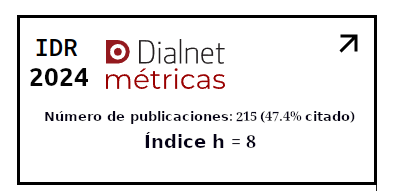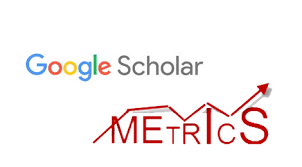Technostress in argentine university students during COVID-19 pandemic
DOI:
https://doi.org/10.30545/academo.2024.ene-abr.1Keywords:
technostress, university students, COVID-19 pandemicAbstract
The increasing use of digitalization in higher education requires the use of various information and communication technologies (ICTs). However, studies have shown that the use of ICTs induces techno-stress and, sometimes, techno-addiction. The main objective of this work was to study the psychological impact of the use of ICTs in university students from Argentina in the context of the COVID-19 pandemic. The methodological design used was non-experimental, cross-sectional, descriptive, correlational and group difference. The sample consisted of 1656 university students with a mean age of 24.69 (SD = 6.52, Min = 18, Max = 66; 78.2% were female and 21.8% were male). The results reported high to very high levels of technostress, predominantly in women who used cell phones and computers for academic purposes. In turn, positive and significant relationships were found between participants' age, length of university experience and frequency of computer use. Negative and significant correlations were obtained between the frequency of cell phone use and the dimensions Fatigue, Skepticism and Addiction. Finally, the frequency of computer use for academic purposes correlated positively and significantly with the dimensions Anxiety, Fatigue, Skepticism and Inefficacy. It can be concluded that the psychological impact of the use of ICTs in university students from the Argentine population in the context of the COVID-19 pandemic produced modifications in the quality of life and daily life activities of the students.
Downloads
References
Arredondo-Hidalgo, M. G., & Caldera-González, D. (2022). Tecnoestrés en estudiantes universitarios. Diagnóstico en el marco del covid-19 en México: Technostress in university students. Diagnosis in the framework of covid-19 in Mexico. Educación y Humanismo, 24(42), 90-105. https://doi.org/10.17081/eduhum.24.42.4491
Brod, C. (1984). Technostress: The human cost of the computer revolution. Addison Wesley Publishing Company.
Brunetti, A., & Gargoloff, P. R. (2020). Impacto de la pandemia por COVID-19 en la salud mental, con especial foco en personas con trastornos mentales severos y persistentes. Question. https://doi.org/10.24215/16696581e278
Cohen, J. (1988). The effect sizes. Statistical power analysis for the behavioral sciences, 77-83.
Cruz Covarrubias, L. P., & Aguilar Pérez, P. (2022). Transición al aprendizaje virtual y sus efectos: tecnoestrés en estudiantes universitarios en el contexto de la covid-19. Revista Panamericana de Pedagogía, (34), 52–71. https://doi.org/10.21555/rpp.vi34.2581
Cuervo, T., Orviz, N., Arce, S., & Fernández, I. (2017). Tecnoestrés en la Sociedad de la Tecnología y la Comunicación: Revisión bibliográfica a partir de la Web of ScienceArchivos de Prevención de Riesgos Laborales, 21(1), 18-25. https://dx.doi.org/10.12961/aprl.2018.21.01.4
Decreto 297/2020, Boletín Oficial de la República Argentina N° 34, 334, Primera Sección, pp. 3-6 (2020).
Eidman, L., & Basualdo Falleau, S. E. (2021). Adaptación y validación de la escala RED-tecnoestrés en población de estudiantes universitarios argentinos. ACADEMO, 8(2):178-188. https://doi.org/10.30545/academo.2021.jul-dic.7
Essel, H. B., Vlachopoulos, D., Tachie-Menson, A., Johnson, E. E., & Ebeheakey, A. K. (2021). Technology-induced stress, sociodemographic factors, and association with academic achievement and productivity in Ghanaian higher education during the COVID-19 pandemic. Information, 12(12), 497. https://doi.org/10.3390/info12120497
Estrada Araoz, E. G., Gallegos Ramos, N. A., Huaypar Loayza, K. H., Paredes Valverde, Y., & Quispe Herrera, R. (2021). Tecnoestrés en estudiantes de una universidad pública de la Amazonía peruana durante la pandemia COVID-19. Revista Brasileira de Educação Do Campo, 6, e12777. https://doi.org/10.20873/uft.rbec.e12777
Instituto Nacional de Encuestas. (2019). Encuesta sobre equipamiento y uso de tecnologías de información y comunicación en los hogares españoles. INE.
Jiménez, A. L. (2010). Tecnología como fuente de estrés: una revisión teórica al concepto de tecnoestrés. Temas de comunicación, (21), 157-180.
Llorens, S., Salanova, M., & Ventura, M. (2011). Guía de intervención: Tecnoestrés. Síntesis.
Moreno Zamudio, T., Hernández Contreras, J., & Castañeda Barajas, A. (2022). Tecnoestrés en estudiantes universitarios. Revista de Psicología de la Universidad Autónoma del Estado de México, 11(25), 108-130. https://doi.org/10.36677/rpsicologia.v11i25.18723
Organización Panamericana de la Salud. (2020). Actualización Epidemiológica: Nuevo coronavirus (COVID-19) 14 de febrero de 2020. Washington DC: Organización Panamericana de la Salud.
Penado Abilleira, M., Ríos-De-Deus, M. P., Rodicio-García, M. L., Mosquera-González, M. J., & Rego-Agraso, L. (2021). Tecnoestrés objetivo en estudiantes universitarios durante la pandemia por COVID-19. En, Medios digitales y metodologías docentes: Mejorar la Educación desde un aprendizaje integral (pp. 256–267).
Qi, C. (2019). A double-edged sword? Exploring the impact of students’ academic usage of mobile devices on technostress and academic performance. Behaviour & Information Technology, 38(12), 1337-1354. https://doi.org/10.1080/0144929X.2019.1585476
Salanova, M. (2003). Trabajando con tecnologías y afrontando el tecnoestrés: el rol de las creencias de eficacia. Revista de Psicología del Trabajo y de las Organizaciones, 19(3), 225-246.
Salanova, M., Cifre, E., & Martín, P. (1999). El proceso de Tecnoestrés y estrategias para su prevención. Prevención, Trabajo y Salud, 1, 18-28.
Salanova, M., Llorens, S., Cifre, E., & Nogareda, C. (2007). Tecnoestrés: concepto, medida e intervención psicosocial. Nota técnica de prevención, 730, 21ª serie. Instituto Nacional de Seguridad e Higiene en el Trabajo.
Toledo-Ibarra, G. A., Arvizu-Gómez, J., Cayeros-López, L., Luna-Jiménez, P., Barrón-Arreola, K. S., Ávila-Ángel, A. S., & Girón-Pérez, M. I. (2020). La Pandemia de COVID-19 desde la visión multidisciplinar de 28 Profesores Universitarios de Nayarit, México. Revista Bio Ciencias, 7, 33.
Verkijika, S. (2019). Digital textbooks are useful but not everyone wants them: The role of technostress. Computers & Education, 140,103591.
Weil, M., & Rosen, L. (1997). Technostress: coping with technology @work, @home, @play. New York, USA: John Wiley & Son.









